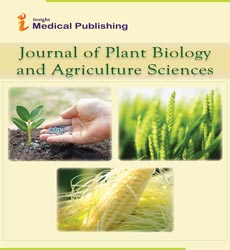Nano-assisted Genome Editing for Crop Improvement-Plant Genomics Webinar
Abstract
Current agricultural practices need to be modernized and strengthened to meet the food needs of the growing world population. Hence, new and advanced approaches keep on developing for the crop-improvement. Nano-enabled agriculture is a new such area. Genome editing using nanotechnology is used in agricultural research to improve stress tolerance, targeting, controlled release of pesticides, and improve photosynthetic efficiency. Genome editing is more accurate, faster, and cheaper than other transgenic approaches. Clustered regularly interspaced short palindromic repeats (CRISPRs) using nucleases are a customizable and successful method for genome editing. However, there are some limitations such as time-consuming and complex protocols, inevitable DNA integration into the host genome, potential tissue damage, and low transformation efficiency. To overcome these problems, nanoparticle-mediated gene delivery has emerged as innovative technology. Combining current technologies such as speed breeding and CRISPR/Cas with nanotechnology can advance crop improvement programs. Recent advances in the development of genome editing tools have revolutionized the ability of researchers to genetically investigate and modify biological systems. However, genetic engineering of mature plants and their plastids remains a challenge due to the various physical barriers. Nanomaterials develop a nanoscale understanding of the mechanisms that can be used to achieve nanoparticle transport across plant cells and chloroplast membranes and identify highly efficient nanoparticle complexes for plant cell internalization. Researchers are creating a nanoparticle platform that enables electrostatic-grafting of genomic biomolecules used to genetically transform mature plants. In addition to the use of magnetic nanoparticles, carbon nanotubes are also an increasingly popular nano-tool for plant transfection. Carbon nanotubes merged with gene fragments have been shown to effectively transport transient and expression genes to the leaves of various plant species, including wheat, cotton, and arugula. Nanotechnology-based genomics is still in its infancy, but it has a promising future for crop improvement and modern agricultural research.
Open Access Journals
- Aquaculture & Veterinary Science
- Chemistry & Chemical Sciences
- Clinical Sciences
- Engineering
- General Science
- Genetics & Molecular Biology
- Health Care & Nursing
- Immunology & Microbiology
- Materials Science
- Mathematics & Physics
- Medical Sciences
- Neurology & Psychiatry
- Oncology & Cancer Science
- Pharmaceutical Sciences
